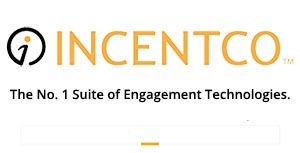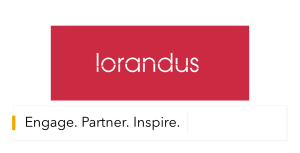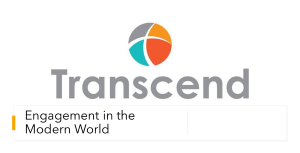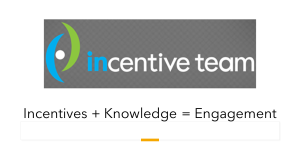Dave Ulrich on the State of Strategic Human Resources Management
.jpeg) Three years have passed since Dave Ulrich helped kick off the Enterprise Engagement Alliance YouTube insight and how-to show on effective stakeholder management across the enterprise. He shared information on the business operating model his RBL Institute has developed to help human resources move from a sunk cost to a source of value creation. Ulrich returns to the EEA YouTube show program for an update on his mission as more people in the human resources profession begin to talk about value creation and operating systems.
Three years have passed since Dave Ulrich helped kick off the Enterprise Engagement Alliance YouTube insight and how-to show on effective stakeholder management across the enterprise. He shared information on the business operating model his RBL Institute has developed to help human resources move from a sunk cost to a source of value creation. Ulrich returns to the EEA YouTube show program for an update on his mission as more people in the human resources profession begin to talk about value creation and operating systems.A Strategic and Systematic Approach
Show Highlights
Click here for links to information about EEA preferred engagement solution providers.
Now that the concept of human resources operating systems is beginning to gain traction with new players coming on board, the Enterprise Engagement Alliance goes back to the source of the concept:
Dave Ulrich, University of Michigan, Stephen M. Ross School of Business and Co-Founder & Principal of The RBL Group and RBL Institute, who first developed the concept in 1995 and who has promoted this strategic and systematic approach to value creation through people ever since. So, when people hear about new human resources influencers promoting their human resources operating systems, remember the man who decades ago developed a concept that may be the next biggest development in human resources in the coming years.
Click here to watch the 45-minute show. Please excuse the brief technical glitch at the beginning.
A Strategic and Systematic Approach
Ulrich says his company’s RBL's Organization Guidance System (OGS) is based on 30 years of proprietary research and predictive technology to shift the approach to managing people as a sunk cost to a strategic human capability investment based on value creation. The company says OGS is a prescriptive, results-based, and closely measured science based on the contribution of human capability to organizational success. OGS is designed to help organizations decide which human capability investments have the greatest impact on targeted business outcomes (financial, customer, employee, strategic, and corporate social responsibility.) Once companies begin investing, Ulrich says OGS monitors and measures the impact of investments on business results to provide ongoing, high-impact guidance. As explained in the show, Ulrich has never worked in human resources. All his research and extensive advisory services to the C-suite, he says, arose from his belief in the power of business to do much good and his interest in finding ways to make it both more efficient, inspiring, and sustainably effective.
Show Highlights
- CEOs and senior management are talking more than ever about human capital and the value of employees and other stakeholders, and there is a growing receptivity for strategic operating systems for human resources, as witnessed by other human resources organizations beginning to promote such concepts. What is needed is greater awareness of how to turn this interest into practice.
- About 20% of large companies are on the path to a more strategic and systematic approach to stakeholder management, 60% are receptive, and about 20% will always prefer the short-term approach of profit generation without regard to sustainable results based on stakeholder engagement, Ulrich suspects.
- A shift toward a greater focus on people is being driven by investors who see the opportunity for value creation and more sustainable return, and by consumers, employees and other stakeholders who wish to invest in, do business with, or work for communities that create wealth in a mutually beneficial manner. This in turn is driving demand for greater transparency about how organizations treat their stakeholders and the environment as well as regulatory developments, including the new EU Corporate Sustainability Reporting Directive and anticipated new proposed regulations for public companies to report on human capital costs and employee turnover.
- The CEO is the head of human resources in the sense that she or he is ultimately responsible for the value created by stakeholders. Today’s CHROs (chief human resources officers) need to be businesspeople first—understanding how to make the connection between employees, customers, other stakeholders, and the achievement of the organization’s purpose, goals, and objectives, including financial results. There remains plenty of room for traditional human resources professionals to address the health and wellness of employees; implement and align the many tactical elements, and of course deal with compliance and legal issues.
- When viewed as a source of value creation, human resources and even performance management executives should accompany salespeople on key presentations to talk about how the organization creates value through people to find out how the organization can create more value and/or ensure that its internal KPIs (key performance indicators) and OKRs (objectives and key results) are aligned with customer needs.
- When talking to the CEO, the CHRO generally should not discuss tactical initiatives unless necessary, but rather focus on what the key areas of pain are for the CEO, because in many cases the issues involve people.
- Every serious study indicates that the most important determinant for effective organizations are the qualities of the talent for each job in terms of emotional intelligence, leadership, skills, and commitment based on job requirements.
- Culture is not a buzzword with quotes on the wall, it’s the embodiment of the spirit and principles of an organization that will delight customers and have an impact on the business.
- There is a need for greater education in HR and throughout management in the concepts of operating systems, metrics, and reporting, and a holistic approach to management.
- Beware of information repackaging. Many of Ulrich's concepts are going to start showing up in the services of other HR advisory firms waking up to the concept.
- On an unrelated but timely topic involving human resources management, Ulrich urges management to stay in their lanes when it comes to making pronouncements on political, social, or religious issues unless the topic is directly related to the purpose, goals, and objectives of the organization.
- The best CSR (corporate, social, responsibility) strategies align with purpose, goals, and objectives rather than ad hoc causes, he advises.
For More Information
Dave Ulrich, Founder
RBL Group
801-373-4238
Host
Bruce Bolger, Founder Enterprise Engagement Alliance
914-591-7600, ext. 230
Bolger@TheEEA.org
ESM Is Published by The EEA: Your Source for Effective Stakeholder Management, Engagement, and Reporting
Through education, media, business development, advisory services, and outreach, the Enterprise Engagement Alliance supports professionals, educators, organizations, asset managers, investors, and engagement solution providers seeking a competitive advantage by profiting from a strategic and systematic approach to stakeholder engagement across the enterprise. Click here for details on all EEA and ESM media services.
1. Professional Education on Stakeholder Management and Total Rewards
- Become part of the EEA as an individual, corporation, or solution provider to gain access to valuable learning, thought leadership, and marketing resources to master stakeholder management and reporting.
- The only education and certification program focusing on Stakeholder Engagement and Human Capital metrics and reporting, featuring nine members-only training videos that provide preparation for certification in Enterprise Engagement.
- EEA books: Paid EEA participants receive Enterprise Engagement for CEOs: The Little Blue Book for People-Centric Capitalists, a quick implementation guide for CEOs; Enterprise Engagement: The Roadmap 5th Edition implementation guide; a comprehensive textbook for practitioners, academics, and students, plus four books on theory and implementation from leaders in Stakeholder Management, Finance, Human Capital Management, and Culture.
2. Media
- ESM at EnterpriseEngagement.org, EEXAdvisors.com marketplace, ESM e–newsletters, and library.
- RRN at RewardsRecognitionNetwork.com; BrandMediaCoalition.com marketplace, RRN e-newsletters, and library.
- EEA YouTube Channel with over three dozen how-to and insight videos and growing with nearly 100 expert guests.
3. Fully Integrated Business Development for Engagement and Total Rewards
Strategic Business Development for Stakeholder Management and Total Rewards solution providers, including Integrated blog, social media, and e-newsletter campaigns managed by content marketing experts.
4. Advisory Services for Organizations
Stakeholder Management Business Plans; Human Capital Management, Metrics, and Corporate Sustainability Reporting for organizations, including ISO human capital certifications, and services for solution providers.
5. Outreach in the US and Around the World on Stakeholder Management and Total Rewards
The EEA promotes a strategic approach to people management and total rewards through its e-newsletters, web sites, and social media reaching 20,000 professionals a month and through other activities, such as:
- Association of National Advertisers Brand Engagement 360 Knowledge Center to educate brands and agencies.


















